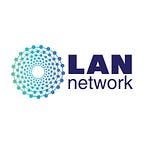Blockchain and Governments
Blockchain is an innovative technology that could potentially revolutionize all aspects of our lives by organizing processes and handling information more efficiently.
Governments are potential users of the blockchain market. Over the past few years, several governments have experimented with the application of blockchain technology for a wide variety of functions, including land registration, education, health care, food supply, and identity management.
What makes Blockchain-based Government advantageous?
A blockchain-based digital government can protect data, streamline processes, reduce fraud and power abuse, and store the data on an open and transparent distributed ledger. This contributes to increasing trust and accountability.
A blockchain-based government has the potential to solve major pain points and enable the following advantages:
🔹 Enhance the security of government, citizen, and business data
🔹 Reduce labor-intensive processes
🔹 Reduce costs associated with managing accountability
🔹 Eliminate the possibility of corruption and power abuse
🔹 Increase trust in government and online civil systems
What holds the governments back from the massive adoption of blockchain technology?
The situation seems quite bright, but why isn’t blockchain massively adopted by governments around the world? The major pain point is trust. The World Bank proposes a three-layer design and implementation framework to prevent potential glitches between the technology and its intended application. The three layers are social, data, and technology.
🔍 What do you think about the future of blockchain technology?
